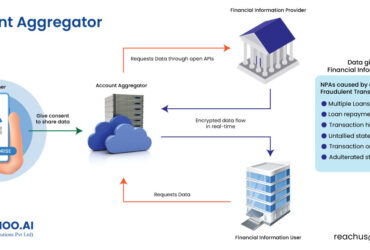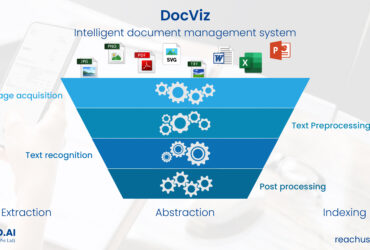
- March 18, 2024
- Mathu G
- Artificial Intelligence, Technology
Wealth management in 2021 and 2022 largely emphasized on how the pandemic sparked disruption. The sudden demand for remote working capabilities and the closure of physical bank branches gave rise to some innovative solutions as well as a newfound focus on ‘CX'(Customer Experience). As we peer into 2023, there are several important drivers of change that will impact the Wealth management industry. They include:
Investors expectations for a seamless, digital experience
Regulatory changes that focus on sustainability
Increased focus on financial wellness
Technology advances that enable more personalized advice
Continued demand for responsible investing
Wealth management industries that can anticipate and adapt to these changes become well-positioned to meet the needs of their clients and thrive in the coming years.

Why use AI and Why Now?
Given that wealth management industries are ripe for reinvention, let’s review the sector’s progress over the past decade. According to Statista, the value of assets in the wealth management sector grew from $45.6 trillion to $103.1 trillion between 2009 and 2020. AI-driven wealth management solution provides you with the current wealth snapshot, portfolio performance, and market news that can run on various devices. It’s worth noting that, unlike many other businesses, the wealth management industry expanded by 11% even during the global pandemic. This is precisely why now is the perfect time for wealth management industries to reinvent themselves.
The Challenges
With the expanding business needs of wealth managers, the current type of infrastructure has become complex, moving their focus from core accounting and portfolio management to a broader range of functions and responsibilities. Scott Reddel, managing director of wealth management at Accenture says
“There’s a lot of different pilots of different use cases, so it becomes hard for an advisor to figure out what’s really useful or where they’re getting the value. That creates a lot of churn in adoption”.
AI in Action
AI in wealth management is still in the early stages of adoption. It is clear that it has the potential to revolutionize the industry. As one would expect, every organization has discovered on how it uses technology to advise clients on their investments in different ways depending on
The needs of their clients
Type of investments they advocate
Overall investment philosophy, and
AI capabilities they have
This allows each organization to find a niche in how they use AI. The following are a few AI solution of wealth management industry:
Robo advisors
Robo-advisors can automate investing strategies to determine the optimal weights of different assets in a portfolio, given an investor’s risk preference. Although these calculations can be done by hand, they are time-consuming and vulnerable to human error. The wealth manager utilizes this digital platform for portfolio-rebalancing, asset allocation, and service quality optimization.
What clients love about Robo-advisors is
They know exactly where their money is invested, and how much return to expect.
The paperless process makes it simple and convenient.
Clients can see their money growing in “real time” by simply logging into a mobile or web application.
All-in-one product catalog
The all-in-one product catalog aggregates multiple products of similar services such as Bonds, Equity, Mutual Funds, Foreign Equity, INVITS and REITS, PMS and Alternate funds. This allows the client to not only get an overview of all the products available to them but also to compare and select the best option for their needs. The catalog is easy to search and filter by investment type, portfolio size, and risk level, allowing customers to choose from a large variety of financial products.
Modern Portfolio theory (MPT)
Modern Portfolio Theory proposes that investors should diversify their securities and asset classes instead of investing all their resources in one venture. It highlights the importance of portfolios, diversification, risk, and the relationships between different kinds of securities. This will reduce the overall risk of the portfolio than the individual risk of the underlying investments.
An investor should invest in both low-priced and high-priced stock to secure maximum ROI over time. Holding a diversified portfolio of stocks always poses less risk than holding any single stock.
What’s Next for AI in Wealth Management?
Currently, only a small number of people can manage their finances independently. However, with AI-based solutions, every investor will be able to properly manage their wealth. AI provides an opportunity to improve customer relations, deliver higher-quality advice, and lower costs. The most significant challenge they face right now is the time and effort required to work with every client.
With AI, there is less need for human effort, and lets wealth managers take on more customers. Increasing financial literacy will let investors learn the importance of financial planning and wealth management. The only way these wealth management industries can fulfill growing demand is by using AI.
Get in touch with us to know more on the transformational capabilities and competitive advantages of Artificial Intelligence in Wealth Management. Write to us: reachus@datamoo.ai











